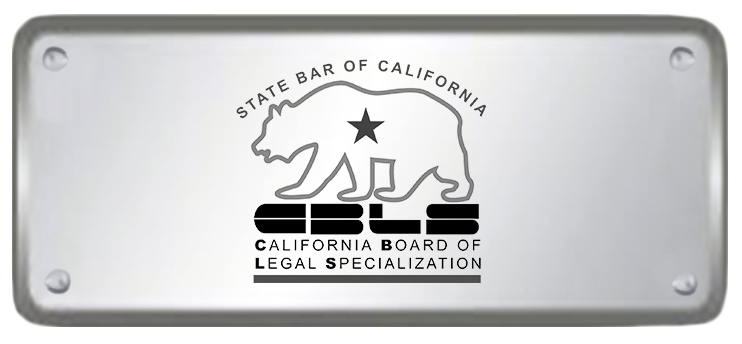PROPERTY AND DIVISION IN A CALIFORNIA DIVORCE
In a California divorce, property division is determined by the character of the property to be divided. Property and debt acquired during the marriage are presumptively community property, and property and debt acquired prior to the marriage and during the marriage by gift or inheritance are presumptively separate property. If the property is community property, then any assets or debts acquired during the marriage are subject to equal division between the spouses unless there is a valid agreement stating otherwise. If the property is separate property, then any assets and debts are confirmed to the spouse with the separate property interest. However, it is important to note that property characterization and division are not always straightforward, and therefore it is recommended to consult with an experienced family law attorney for specific assessment and advice.
Characterization of Property in a California Divorce
In a California divorce, the characterization of property refers to determining whether an asset or debt is classified as community property, separate property, or a combination thereof. This is a crucial step because community property is subject to equal division between the spouses, while the separate property remains with the owning spouse. Here’s a breakdown of how property is characterized in a California divorce:
COMMUNITY PROPERTY:
In general, any property or debt acquired by either spouse during the marriage is presumed to be community property. This includes income, real estate, vehicles, investments, retirement accounts, and debts incurred during the marriage. It doesn’t matter who earned or acquired the property—it is presumed to be jointly owned by both spouses. Community property may also exist by way of transmutation from separate property to community property.
SEPERATE PROPERTY:
Separate property includes assets and debts that belong solely to one spouse and are not subject to division. Separate property can be:
– Property owned by a spouse before the marriage.
– Property acquired during the marriage by gift or inheritance specifically addressed to one spouse.
– Property acquired after the date of separation.
– Property that is transmuted from community property to separate property.
TRACING:
Tracing is often used to determine the character of property. Tracing involves establishing the origin and nature of an asset or debt to determine whether it is separate or community property. This can be complex when there are mixed funds or when separate and community property are combined or commingled. In the case of property acquired during the marriage, the spouse that asserts a separate property interest in this property carries the burden of proof and production to evidence their assertion.
TRANSMUTATIONS:
Transmutation refers to changing the character of property from community to separate or vice versa. Spouses can agree to transmute the character of their property through a valid written agreement, such as a prenuptial agreement or a postnuptial agreement. However, certain formalities must be met for transmutation to be valid and enforceable.
What Happens if an Agreement Can’t Be Reached on Property Characterization and Division?
If you and your spouse are unable to reach an agreement on property characterization and division outside of court, you may need to have the court determine the issue. Here’s an overview of what you can expect:
DISCLOUSURES:
Both spouses are required to provide complete and accurate financial disclosures, including information about their assets, debts, income, and expenses. These disclosures help ensure transparency and facilitate a fair division of property.
DISCOVERY:
Discovery related to assets, debts, claims of reimbursement, character, and similar will most likely be conducted by one or both spouses. This is in addition to mandatory disclosures and can take different forms, such as depositions, written discovery, and subpoenas to non-party entities like financial institutions.
COURT PROCEEDINGS:
The court will schedule hearings to address the various issues in your divorce case, including property characterization and division. The exact process and timeline may vary depending on the complexity of your case, the court’s schedule, and other factors.
EVIDENCE AND TESTIMONY:
During the court proceedings, both parties have the opportunity to present evidence and witnesses to support their positions on property character and division. This may include financial records, tracing, expert testimony, and other relevant evidence.
COURT ORDER:
After considering the evidence and testimony presented, the court will issue a court order that determines the character and division of assets and debts. If assets and debts are determined to be community property, the court must divide the community property equally absent any agreement by the parties to the contrary. The court will make collateral orders for how property should be divided, such as the execution of title documents.
How Can an Attorney Help Me with Property Characterization and Division in my California Divorce?
Property characterization and division can be time-consuming, expensive and may result in outcomes that are different from what was expected. It is advisable to consult with a family law attorney who specializes in California divorce laws and complex property division issues. At Antonyan Miranda, our attorneys can provide guidance, represent your interests in court, and help negotiate a fair settlement outside of court if possible. Our primary goal is to protect your rights and interests throughout the divorce process.
At Antonyan Miranda, we aggressively advocate for your interests at trial, using all available legal tools and strategies to help secure all that is important to you: family, finances, and assets! Call us at 619-696-1100 to speak with one of our Concierge attorneys, or visit us at www.expertdivorcelaw.com for more information.
FOLLOW US!
PROPERTY AND DIVISION IN A CALIFORNIA DIVORCE
In a California divorce, property division is determined by the character of the property to be divided. Property and debt acquired during the marriage are presumptively community property, and property and debt acquired prior to the marriage and during the marriage by gift or inheritance are presumptively separate property. If the property is community property, then any assets or debts acquired during the marriage are subject to equal division between the spouses unless there is a valid agreement stating otherwise. If the property is separate property, then any assets and debts are confirmed to the spouse with the separate property interest. However, it is important to note that property characterization and division are not always straightforward, and therefore it is recommended to consult with an experienced family law attorney for specific assessment and advice.
Characterization of Property in a California Divorce
In a California divorce, the characterization of property refers to determining whether an asset or debt is classified as community property, separate property, or a combination thereof. This is a crucial step because community property is subject to equal division between the spouses, while the separate property remains with the owning spouse. Here’s a breakdown of how property is characterized in a California divorce:
COMMUNITY PROPERTY:
In general, any property or debt acquired by either spouse during the marriage is presumed to be community property. This includes income, real estate, vehicles, investments, retirement accounts, and debts incurred during the marriage. It doesn’t matter who earned or acquired the property—it is presumed to be jointly owned by both spouses. Community property may also exist by way of transmutation from separate property to community property.
SEPARATE PROPERTY:
Separate property includes assets and debts that belong solely to one spouse and are not subject to division. Separate property can be:
– Property owned by a spouse before the marriage.
– Property acquired during the marriage by gift or inheritance specifically addressed to one spouse.
– Property acquired after the date of separation.
– Property that is transmuted from community property to separate property.
TRACING:
Tracing is often used to determine the character of property. Tracing involves establishing the origin and nature of an asset or debt to determine whether it is separate or community property. This can be complex when there are mixed funds or when separate and community property are combined or commingled. In the case of property acquired during the marriage, the spouse that asserts a separate property interest in this property carries the burden of proof and production to evidence their assertion.
TRANSMUTATIONS:
Transmutation refers to changing the character of property from community to separate or vice versa. Spouses can agree to transmute the character of their property through a valid written agreement, such as a prenuptial agreement or a postnuptial agreement. However, certain formalities must be met for transmutation to be valid and enforceable.
What Happens if an Agreement Can’t Be Reached on Property Characterization and Division?
If you and your spouse are unable to reach an agreement on property characterization and division outside of court, you may need to have the court determine the issue. Here’s an overview of what you can expect:
DISCLOSURES:
Both spouses are required to provide complete and accurate financial disclosures, including information about their assets, debts, income, and expenses. These disclosures help ensure transparency and facilitate a fair division of property.
DISCOVERY:
Discovery related to assets, debts, claims of reimbursement, character, and similar will most likely be conducted by one or both spouses. This is in addition to mandatory disclosures and can take different forms, such as depositions, written discovery, and subpoenas to non-party entities like financial institutions.
COURT PROCEEDINGS:
The court will schedule hearings to address the various issues in your divorce case, including property characterization and division. The exact process and timeline may vary depending on the complexity of your case, the court’s schedule, and other factors.
EVIDENCE AND TESTIMONY:
During the court proceedings, both parties have the opportunity to present evidence and witnesses to support their positions on property character and division. This may include financial records, tracing, expert testimony, and other relevant evidence.
COURT ORDER:
After considering the evidence and testimony presented, the court will issue a court order that determines the character and division of assets and debts. If assets and debts are determined to be community property, the court must divide the community property equally absent any agreement by the parties to the contrary. The court will make collateral orders for how property should be divided, such as the execution of title documents.
How Can an Attorney Help Me with Property Characterization and Division in my California Divorce?
Property characterization and division can be time-consuming, expensive and may result in outcomes that are different from what was expected. It is advisable to consult with a family law attorney who specializes in California divorce laws and complex property division issues. At Antonyan Miranda, our attorneys can provide guidance, represent your interests in court, and help negotiate a fair settlement outside of court if possible. Our primary goal is to protect your rights and interests throughout the divorce process.
At Antonyan Miranda, we aggressively advocate for your interests at trial, using all available legal tools and strategies to help secure all that is important to you: family, finances, and assets! Call us at 619-696-1100 to speak with one of our Concierge attorneys, or visit us at www.expertdivorcelaw.com for more information.


























